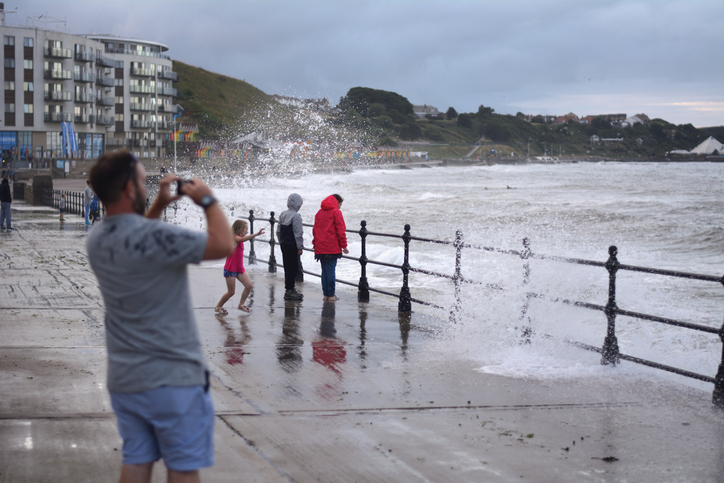Experts are urging governments to act swiftly in response to the growing threat of coastal inundation to prevent damage in excess of $7 trillion and and protect themselves from liability.
As the world approaches the “two degrees Celsius” global warming threshold, which scientists believe could cause sea levels to rise up to several metres, a new report from the OECD has called for immediate action to mitigate the potentially catastrophic and costly impacts of rising tides.
The Organisation for Economic Co-operation and Development report, released on March 6, flags the prospect of coastal regions facing increasing risks from rising oceans, with a potential cost of 4 per cent of world GDP annually.
Under current projections, “it is almost certain that we will experience at least one-metre of sea-level rise with some models estimating this will happen within the next 80 years,” the Responding to Rising Seas, OECD approaches to tackling coastal risks report says.
“This will have serious implications for damage to infrastructure, loss of land and displacement of communities.”
The report says the latest modelling suggests that “under a high-end sea-rise scenario residual damage costs could be between $US 1.7 trillion and $US 5.5 trillion over the 21st Century”.
Protect, accommodate, retreat
National governments could find themselves exposed to increasing liabilities in terms of relief and compensation if they don’t prepare, and the report urges adaptation options based on the principles of “protect, accommodate and retreat”.
The report says in most OECD countries, local government is responsible for managing coastal risks, but this must be resourced at a national level.
Countries must ramp up intervention measures, the report says, with current interventions in OECD countries happening “too slowly to match the pace and scale of challenges ahead.”
It says member countries have generally been slow to adapt to the future threat and not enough thought has been given to regulation, funding and monitoring frameworks.
“While not all coastal risks can be avoided, well prepared coastal communities will be better able to adjust to new conditions, at a lower cost, and rapidly bounce back from disasters when they do occur,” it says.
Governments must use planning processes to respond to the challenge of coastal inundation, the report argues, with interventions having the potential to respond to damage and rein in costs.
“It is vital that countries strengthen their ability to understand, plan for and continuously manage climate risks. There is some progress … however; there is a pressing need to translate planning into implementation,” director of the OECD Environment Directorate Rodolfo Lacy said.
Drawing on case studies from Canada, Germany, New Zealand and the UK, the report outlines key principles which should be considered by governments developing coastal adaptation strategies.
Central to the response is engaging stakeholders “early and substantively” and planning for the future to avoid becoming “locked in” to unsustainable pathways, the report says.
The Era of Disasters

The call comes as a paper from the Australian Strategic Policy Institute warns that a climate change will usher in a new era in security in Australia.
“As the world warms beyond 2 degrees C … an era of disasters will be upon us with profound implications for how we organise ourselves to protect Australian lives, property and economic interests and our way of life,” Dr Robert Glasser, the former Head of the UN Office for Disaster Risk Reduction,’ writes.
He says large parts of Australia will be in “chronic crisis” from rising temperatures, floods, drought and bushfires. This will put increasing pressure on emergency services, undermine community resilience and send costs up, as well as having implications for food security in the region.
Dr Glasser says all levels of government should take the following steps:
- Scale up efforts to prevent the effects of natural disasters linked to extreme weather
- Increase planning for financial support to the states for economic recovery and establish “fodder banks” and “land banks”
- Strengthen disaster capacity at all levels, including that of the military, which will be an increasingly important role in disaster response
- embed consideration of climate change in all flood and bush fire maps, building codes, planning and infrastructure delivery
Comment below to have your say on this story.
If you have a news story or tip-off, get in touch at editorial@governmentnews.com.au.
Sign up to the Government News newsletter.





What is the photo supposed to represent. A bit of sea water being forced onto a breakwall/walkway at some beach in high winds and probably /perhaps high tide? Is this supposed to demonstrate some gross climate change?!